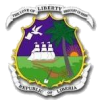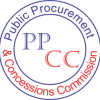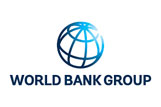
PUBLIC PROCUREMENT
&
CONCESSIONS COMMISSION- +231 0881102273
- +231 0775382251
- Help Hotline: 4357
- info@ppcc.gov.lr

Facts about Procurement
Goods are tangible items in any form including raw
materials, products, equipment and objects in solid, liquid or gaseous form, as well as services incidental to the supply of the goods where the value of those incidental services are insignificant in relation to the value of the goods.
Procurement of services is the process of getting an intellectual, technical or advisory nature, including consultancy services.
These incidental services are insignificant in relation to the value of the goods.
Works are associated with the construction, reconstruction, demolition, repair or renovation of a building or structure or surface and includes site preparation, excavation, assembling, installation of plant, fixing of equipment and laying out of materials, decoration and finishing, and any incidental activity under a works contract. Those incidental services are insignificant in relation to the value of the goods.
- Sole Source
- National Open Competitive Bidding (NCB)
- International Open Competitive Bidding (ICB)
- Restricted Bidding
- Request for Quotations: Alternative for Small Scale Purchases
- Procurement thresholds determine what action is required based on the estimated cost of the item being procured.
Procurement is the process of purchasing goods or services, usually in reference to business spending.
Important Contacts






All Rights Reserved 2023 © Public Procurement and Concessions Commission (PPCC) | Executive Mansion Grounds, Capitol Hill, Monrovia, Liberia.